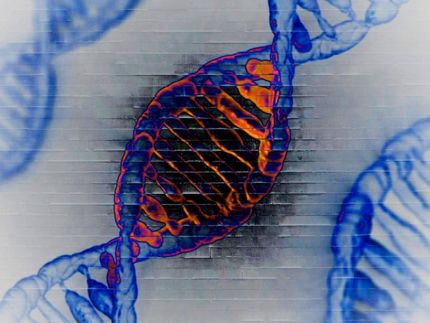ARS scientists develop self-pollinating almond trees
Self-pollinating almond trees that can produce a bountiful harvest without insect pollination are being developed by Agricultural Research Service (ARS) scientists. This is good news for almond growers who face rising costs for insect pollination because of nationwide shortages of honeybees due to colony collapse disorder (CCD) and other factors.
ARS geneticist Craig Ledbetter, at the agency's Crop Diseases, Pests and Genetics Research Unit near Parlier, Calif., is developing this new line of self-pollinating almond trees. Self-pollinating almonds are not new. The Tuono variety, originally from Spain, has been around for centuries. But its traits are not attractive when compared to California's most popular almond, Nonpareil.
Tuono's seed coat has a hairy texture and it has a very thick shell, so only 32 percent of the nut is edible kernel, compared to 60 to 65 percent for Nonpareil. But Tuono's thick shell gives it more resistance to the navel orangeworm and other pests. An almond that has traits from both varieties would be ideal.
Ledbetter and his collaborators used Tuono as the male (pollen) parent in conventional hybridizations with California-adapted almond cultivars and selections. The scientists made crosses at bloom time and came back at harvest time to collect the nuts. They then grew those nuts into seedlings and surrounded the branches with insect-proof nylon bags to exclude insects that could serve as pollinators. The seedlings bloomed and some produced fruits inside the bags, making these seedlings self-pollinating.
The original plantings in 1996 at first produced only small harvests, but by 2006 produced excellent results. In November 2008, after a very good almond harvest, Ledbetter and his team from Parlier brought eight very promising selections from his self-pollinating almond breeding program to the Almond Board of California for evaluation.
The board was pleased with the skin color, oil content and, most importantly, the flavor. And best of all, the new almonds have many of the same characteristics as Nonpareil, which sells for premium prices.
Other news from the department science

Get the life science industry in your inbox
By submitting this form you agree that LUMITOS AG will send you the newsletter(s) selected above by email. Your data will not be passed on to third parties. Your data will be stored and processed in accordance with our data protection regulations. LUMITOS may contact you by email for the purpose of advertising or market and opinion surveys. You can revoke your consent at any time without giving reasons to LUMITOS AG, Ernst-Augustin-Str. 2, 12489 Berlin, Germany or by e-mail at revoke@lumitos.com with effect for the future. In addition, each email contains a link to unsubscribe from the corresponding newsletter.




















































